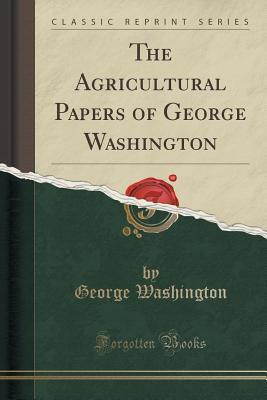- Bible
- Read the Bible
- Bible Versions
- Verse of the Day
- Reading Plans
- Verses by Topic
- Books of the Bible
- Bible Images
- Study
- Commentaries
- Concordances
- Dictionaries
- Encyclopedias
- Sermons
- Bible Atlas & Maps
- BP Wiki
- Devotionals
- Today's Devotionals
- Light of the World
- All Devotionals
- Inspirational Quotes
- More
- Picture Quotes
- Videos
- Inspirational
- Bible Study
- What The Bible Says
- Bible Q&As
- Daily Bread
- Bible by Genre
- Bible Stories
- Random Bible Verse
- Community
- Store
The Agricultural Papers of George Washington (Classic Reprint)
by George Washington
Excerpt from The Agricultural Papers of George Washington
He spent much of his time and energy collecting money with which to make the fine Y. M. C. A. Building known as Byers Hall, a homelike place for the students to gather. The furnishings, lights and pictures were details which did not escape his careful planning. But the main attraction was the wonderful fireplaces with their bright and cheerful log fires. Here he gathered around. Him his first group of staunch student friends, many of whom remained his regular correspondents to the day of his death. So engrossing was this work for young men that he remained to complete two years of post-graduate study, during which time he special ized in sociology and economics.
About the Publisher
Forgotten Books publishes hundreds of thousands of rare and classic books. Find more at www.forgottenbooks.comwww.forgottenbooks.com
This book is a reproduction of an important historical work. Forgotten Books uses state-of-the-art technology to digitally reconstruct the work, preserving the original format whilst repairing imperfections present in the aged copy. In rare cases, an imperfection in the original, such as a blemish or missing page, may be replicated in our edition. We do, however, repair the vast majority of imperfections successfully; any imperfections that remain are intentionally left to preserve the state of such historical works.
He spent much of his time and energy collecting money with which to make the fine Y. M. C. A. Building known as Byers Hall, a homelike place for the students to gather. The furnishings, lights and pictures were details which did not escape his careful planning. But the main attraction was the wonderful fireplaces with their bright and cheerful log fires. Here he gathered around. Him his first group of staunch student friends, many of whom remained his regular correspondents to the day of his death. So engrossing was this work for young men that he remained to complete two years of post-graduate study, during which time he special ized in sociology and economics.
About the Publisher
Forgotten Books publishes hundreds of thousands of rare and classic books. Find more at www.forgottenbooks.comwww.forgottenbooks.com
This book is a reproduction of an important historical work. Forgotten Books uses state-of-the-art technology to digitally reconstruct the work, preserving the original format whilst repairing imperfections present in the aged copy. In rare cases, an imperfection in the original, such as a blemish or missing page, may be replicated in our edition. We do, however, repair the vast majority of imperfections successfully; any imperfections that remain are intentionally left to preserve the state of such historical works.
BUY NOW
Paperback, 154 pages
Published January 5th 2019 by Forgotten Books (first published August 1st 2007)
© 2025 Bibleportal.com All rights reserved.

George Washington was the commander of the Continental Army in the American Revolutionary War (1775-1783) and served as the first President of the United States of America (1789-1797). For his central role in the formation of the United States, he is often referred to as the father of his country.
Washington was baptized into the Church of England. In 1765, when the Church of England was still the state religion, he served on the vestry (lay council) for his local church. Throughout his life, he spoke of the value of righteousness, and of seeking and offering thanks for the "blessings of Heaven."
The Electoral College elected Washington unanimously in 1789, and again in the 1792 election; he remains the only president to receive 100% of the electoral votes.
Washington proved an able administrator. An excellent delegator and judge of talent and character, he held regular cabinet meetings to debate issues before making a final decision. In handling routine tasks, he was "systematic, orderly, energetic, solicitous of the opinion of others but decisive, intent upon general goals and the consistency of particular actions with them.
Washington died in 1799. He has been consistently ranked by scholars as one of the greatest U.S. Presidents.
... Show more